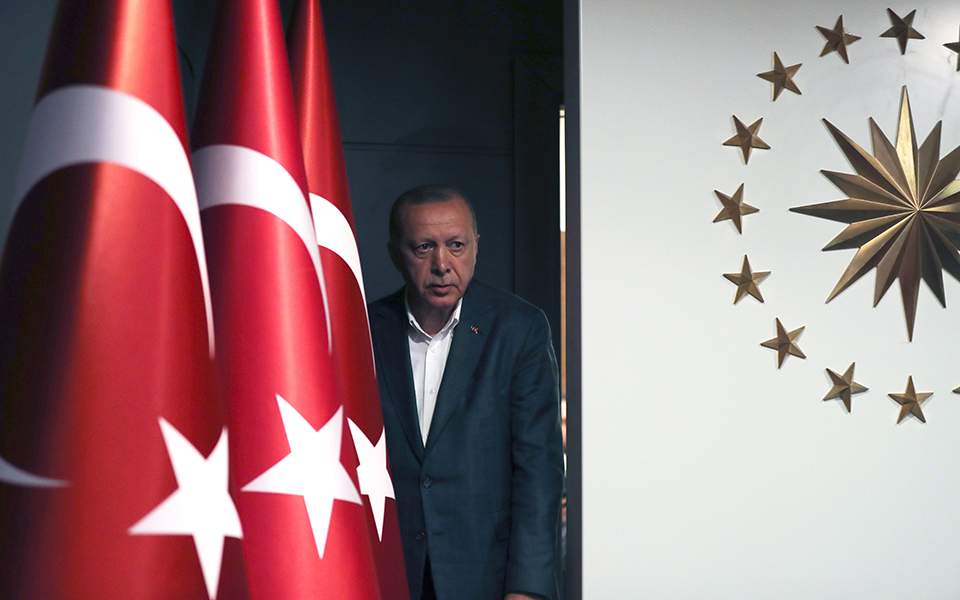Erdogan’s visit and other headaches

From the moment Recep Tayyip Erdogan returned to Turkey from Greece in early December the catastrophic repercussions of his official visit started to become evident.
First, it was the statements of Education Minister Costas Gavroglou on the “election” of the mufti of Thrace, a practice unknown to all Muslim and non-Muslim countries. Everywhere they are always appointed by the government.
Then came strong, well-orchestrated statements from Turkish government and opposition politicians, including the vice president and the leader of the opposition CHP party, declaring that Greece has occupied Turkish islands – in effect voicing support for a historic revision of Greek sovereign rights in the Aegean emanating from international conventions.
Then there was a reversal in the treatment of the Turkish fugitives. Their applications for asylum are being reconsidered, another irregular retreat by Greece following pressure from Ankara.
Furthermore, there is the “official” narrative of Greece’s mainstream parties in supporting the continuation of negotiations for Turkey to join the European Union. Such opinions are far removed from the common view not only of the Greeks but also the majority of European citizens.
Turkey’s increasing demands and Greece’s efforts to appease Ankara also create risks for Cyprus. Should President Nicos Anastasiades be elected in February for a second term, he has repeatedly declared that he will pursue the resumption of negotiations for a settlement from the point they were interrupted in July 2017 on the structure of a federal state. This could mark the end of Cyprus as an independent state. Anastasiades was prepared in Crans-Montana and beyond to accept “a termination date” for the Turkish presence as well as an international police force in which Turkey would participate.
Turning to the name dispute with the Former Yugoslav Republic of Macedonia (FYROM), all analysts see a window of opportunity to resolve the dispute. Greece has declared urbi et orbi that it will not consent to FYROM becoming a member of the EU and NATO unless and until the dispute over its name is settled and its irredentism withdrawn.
Today Greece and FYROM are being pressured to find a compromise solution to the problem. All the main Greek parties recognize in private that, realistically, a composite name which will include the name “Macedonia” in some form or language to be used erga omnes is acceptable. However, parochial small-time political parties and politicians, mainly from (Greek) Macedonia, are declaring they will not vote for a composite name which will include the word “Macedonia.”
This development jeopardizes a possible compromise and will have serious adverse results for Greece, not only because all its allies, including the US, support such an agreement, but also because, objectively speaking, it is in the interest of Greece to have a small “buffer state” at this specific point. A possible agreement with FYROM would create the conditions for Greece, with the appropriate policies, to become the natural leader of the Balkans.
Unfortunately, New Democracy wants the leftist-led coalition to present a unified position as a precondition for offering its own support. However, the opposition’s demand may put an eventual agreement in jeopardy and should be avoided. The suggestion is for Greek President Prokopis Pavlopoulos to hold a meeting of party leaders, who will then decide by majority the line to be followed, and for all parties to commit themselves to follow the majority line.
One other major obstacle is the publicly expressed will of the government in Skopje to put the deal to a referendum. In such a case Athens should declare that Greece will also test the proposed agreement in a similar way. Referendums should be avoided because they complicate matters. The problem should be resolved solely by negotiations.
* George C. Economou is president of the Athens chapter of the American Hellenic Institute (AHI).





